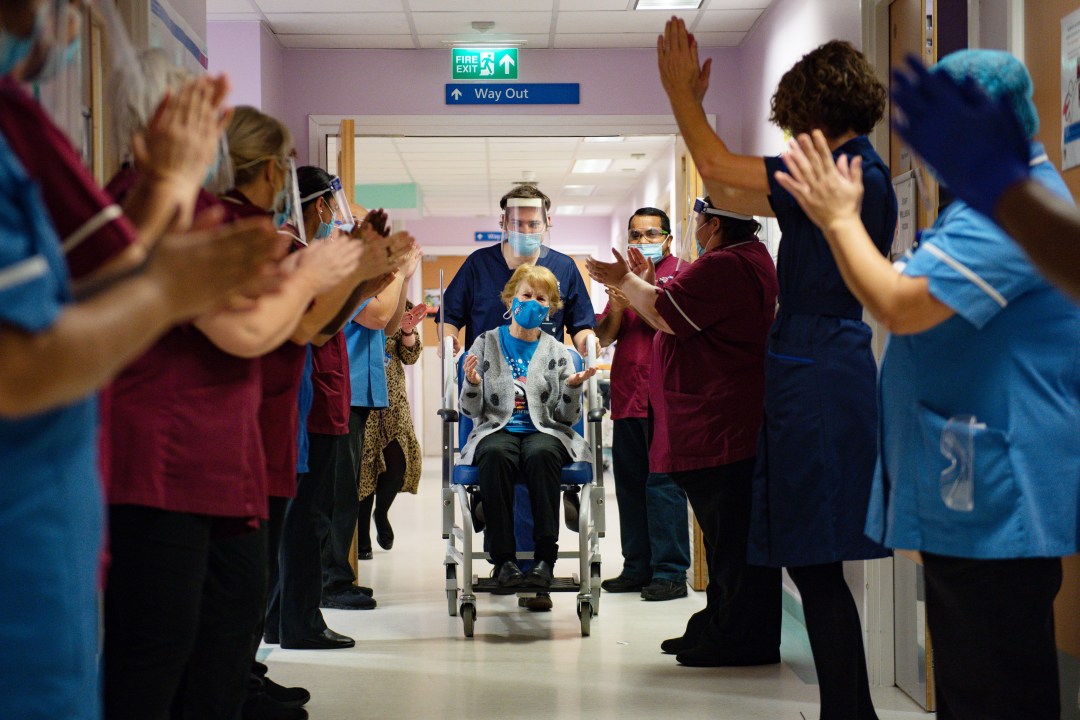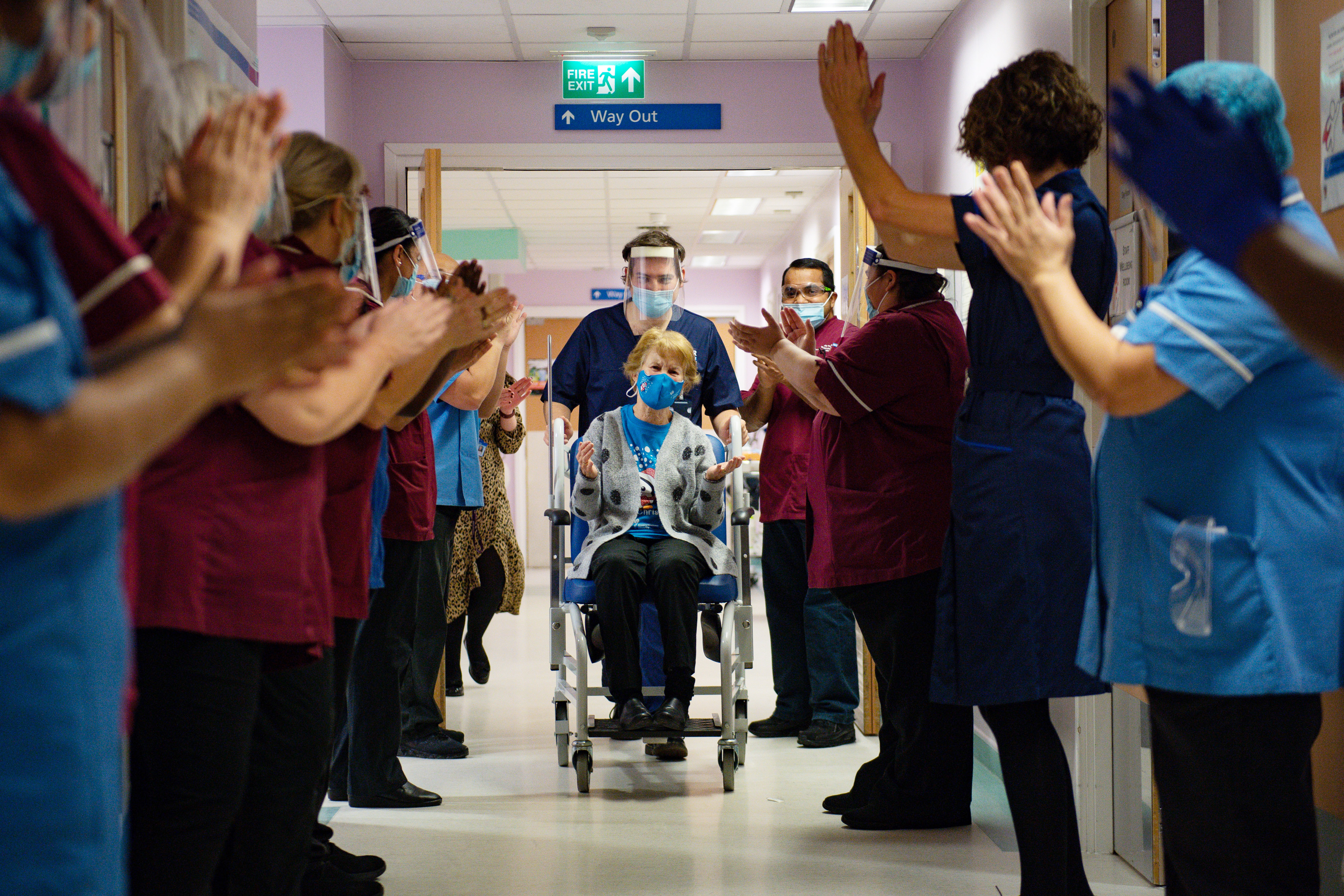In order to vaccinate as many people as possible, the government has decided to change the length of time between the first jab and the second. What’s more, there has even been a suggestion that — in exceptional circumstances — the NHS could use a different vaccine for the second jab from the one used in the first. Cue a wave of criticism, not least from medical professionals and academics, concerned the government is pushing for something different to what the science suggests. The New York Times reported that the government’s decision had ‘confounded’ experts, while the MP Claudia Webbe called the move ‘dangerously anti-science’.
Under their licences — the guidance that sets out how an approved drug should be used — the vaccines should be administered in two separate doses, three to four weeks apart. The government is suggesting an interval of 12 weeks, arguing that such a move will spread the benefits of protection more broadly and bring us closer to ending this crisis. I think the government is correct — and those who take exception are being too rigid in their approach to evidence.
There is nothing particularly out of the ordinary about using a drug ‘off licence’. It is expensive to go through the licencing process and it’s much easier (and cheaper) to get one for a particular target group of patients. So doctors, prescribing for people who are, for example, older or younger than the group in which the licence studies were done have to give the drug ‘off licence’ if they think it is likely to benefit their patients. Similarly, vaccine trials are done according to the best estimate of what is likely to work, a best-guess with little information to go on. Once the licence has been obtained, it is expensive and difficult to get it varied, even if subsequent data show another approach would have been better.
Lives could be lost if we wait for the narrow direct evidence
So in a way that is similar to a clinician’s approach their patients, the Joint Committee on Vaccination and Immunisation (the government’s independent advisers on vaccines) has looked at the population and its needs in the round, rather than strictly adhering to the limited rules of the licence. This is pragmatism, not recklessness — it’s something doctors do all the time. The committee is able to take into consideration all the knowledge we have — and we have decades of knowledge on vaccines, the immune system, and how they interact; not just the data from the licencing trials.
In the case of Covid-19 vaccines, their position is compelling. It is common for vaccines to be more effective against hospital admission and more severe forms of disease. The pre-licencing studies estimated that the initial, single-dose efficacy of the Pfizer-BioNTech vaccine was 89 per cent, and for the Oxford-AstraZeneca vaccine 73 per cent. But for both products, this was the efficacy for mostly mild, symptomatic disease. As there were very few severe cases in the studies, the confidence intervals for efficacy against severe disease are larger (there are fewer severe cases in the trials, so data is harder to come by) but the efficacy appears to be of the order of 90 per cent. And of course, in terms of individual protection and protecting the NHS over the next few months, it’s the more severe cases that are most important.
While we might not yet have observed just how long the vaccines’ effects last, there is sufficient evidence from the trials and other studies to be confident that neither vaccine’s efficacy will wane significantly within 12 weeks of a single dose. And we already know that a single dose of either vaccine will provide at least 70 per cent protection against serious illness requiring hospital admission. The more people that get that level of protection, the sooner we can return to normal.
Of course, some remain concerned. There are worries, for example, that the delayed second dose regime somehow increases the likelihood of the evolution of vaccine-resistant variants. But experience has not shown this to be a major problem with other virus and vaccine combinations — the concern, while not outlandish, is currently hypothetical. One could equally well hypothesise that the strict two-dose administration could drive different forms of mutation. There is no evidence either way. Known benefit must trump theoretical risk.Others have expressed concerns that we do not know how effective boosters will be if administered at 12 weeks. But we have decades of experience with other vaccines. We know that, if anything, increasing the interval tends to enhance the quality of the booster response. We also know that heterologous boosting — using a different product from the one used for the first boost — frequently leads to a stronger booster response. The process seems to improve, for example, TB vaccinations as well as the outcome for people who don’t respond as well to the standard Hepatitis B jab. At present heterologous boosting is not recommended — not, at least, when it is possible to ascertain which product was used for the first dose, and to obtain the same product for boosting. But we can be confident that it will work (and all the more so once trials, currently underway, have studied this more carefully).
Those analysing the political response to the virus are dividing into those who want explicit, narrow, direct empirical evidence and those who are willing to bring in extrapolation from indirect evidence. The issue is, lives could be lost if we wait for the narrow direct evidence
We are in the throes of a pandemic. We haven’t got decades of experience of the vaccines for this virus. We don’t have the luxury of perfect data — it’s an emergency. But we do have decades of knowledge about how the immune system and vaccines interact — we make the best decisions by drawing on all of our knowledge.
Of course, the way these changes were announced was less than ideal. There were suggestions that some might have their second dose cancelled altogether. Given AstraZeneca has said they should soon be able to produce two million doses a week, it would be far better to stick to the 12 week wait until a booster shot is available.
There are serious implications to this beyond the marginal increase in protection. We don’t yet know whether the vaccine will provide sterilising immunity (preventing infection, so that the recipient cannot catch and transmit the virus) or merely stop serious illness. But, if it is going to stop the spread, the vaccine is more likely to do so after a second, boosting dose than after a first, priming dose. This is certainly true in other vaccines. So — at least until we have more data on this — we should probably ensure a second dose for those most likely to infect the vulnerable. Health and social care workers and those ‘shielding by proxy’ (to protect a clinically vulnerable person in their household), for example.
We will soon have much better data on the quality of immunity afforded by a single dose of vaccine, which will enable us to decide whether to continue with this way of doing things. But it may not be necessary for us to make that decision, as there should, in 12 weeks’ time, be sufficient doses available that we can rapidly vaccinate everybody with two jabs according to the licence.
Right now, we must remember that this is an emergency — the evidence will not be perfect. But perfect evidence should not be the enemy of rigorous scientific inference, aimed at saving lives. Thankfully the UK’s vaccine experts agree.







Comments